When you make a list of all the things you are thankful for, do you ever remember the fact that when you turn on your tap, clean drinkable water flows out?
During our time in Indonesia, we’ve come to appreciate the blessing of running water. Most places in Sumba, including our work office, have squat toilets. These are holes in the ground with marked places to put your feet as you squat to relieve yourself. We really need to work on those squatting muscles!
In our home in Waingapu, we are fortunate to have a toilet that we can sit on, but just like the squat toilets, this toilet also requires a bucket of water to flush. With each bucket, we are reminded of the blessing that flush toilets are to us.
Showers have also been an adjustment. Our bathroom in Waingapu has a huge holding tank which gives us all the water we need to take a bucket bath. These are very refreshing in this hot climate and, after the first little gasp, are quite enjoyable. They also use a lot less water than our traditional shower at home in Canada.
While these toilets and showers have been an adjustment to our North American habits, we also know that even these seemingly rustic amenities are a blessing. Unlike many other places in the country, there is plenty of water at our rented home because the property has a fully functioning well.
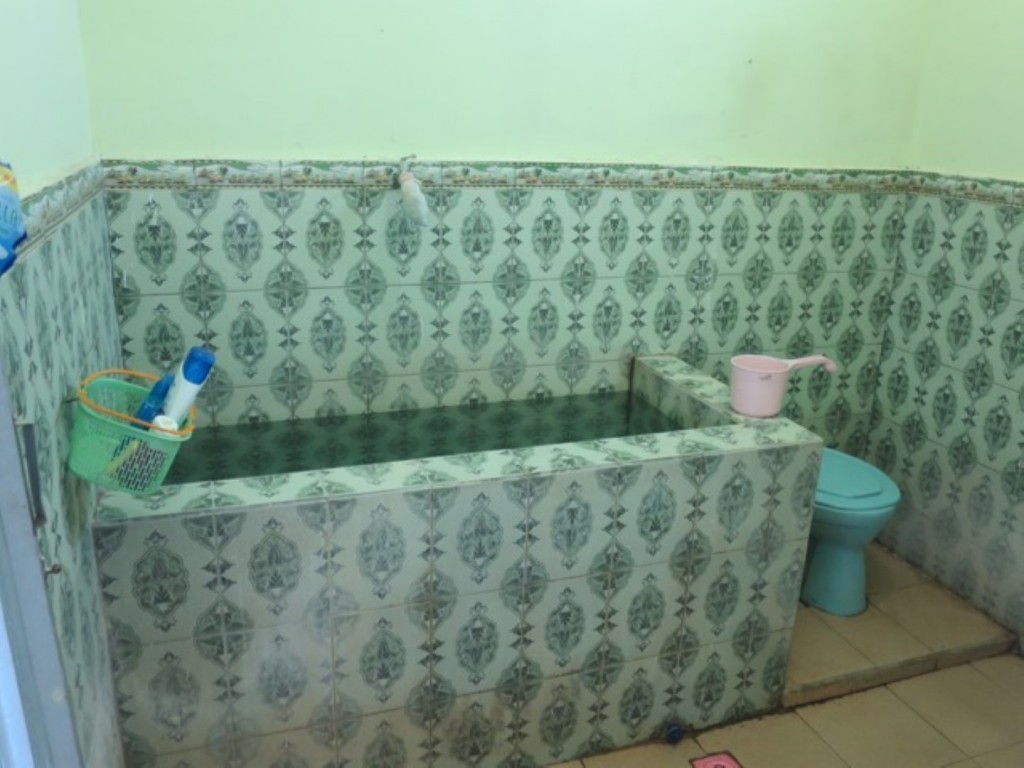
Our bathroom
In previous newsletters, we have shared the fact that water is especially hard to come by in this part of Indonesia this year. There is an ongoing drought in many parts of Sumba, which has seriously affected the crops of subsistence farmers.
Before we did our first food distribution for World Renew, we conducted a baseline survey of one third of all the beneficiary households. We learned that, on average, the villagers were eating slightly less than two meals per day.
While eating two meals per day may seem reasonable, we also learned that over 95% of the people had to resort to various coping strategies in order to obtain this food. Some borrowed food from friends or relatives, some reduced portion sizes or reduced the amount eaten by adults in order for young children to eat. Others sold off livestock or other assets in order to purchase food.
What was equally alarming from the survey results was the participants’ “Food Consumption Score.” This is a standard indicator developed by the World Food program to capture how often and what kinds of food people are eating. It looks at the frequency with which a family consumes food from each of the nine food group categories such as staples, pulses, fruit, vegetables, meat, dairy, etc.
While scores can range from 0 to 112, an alarming 72% of the people in our survey ended up in the ‘Poor’ category, with scores of less than 27. It is one of the reasons why World Renew has included mung beans in our food distributions to help improve the nutritional value of the meals.
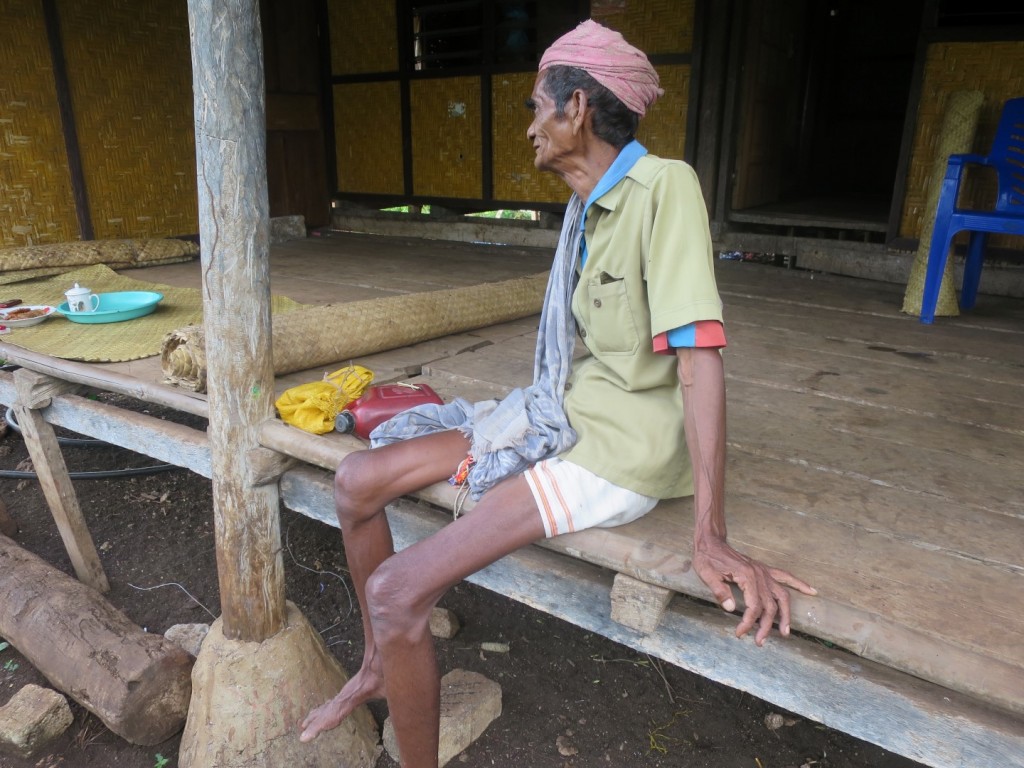
The survey also asked about the availability of drinking water. The results showed that many people had to walk distances of 2 to 4 kilometres per trip to obtain water.
In a normal year, some families harvest rain water to meet their needs. This could be as simple as putting available containers out to catch as much rain as possible or using roofs and eaves troughs to collect precious water into larger tanks. This year, the rains have not provided enough water.
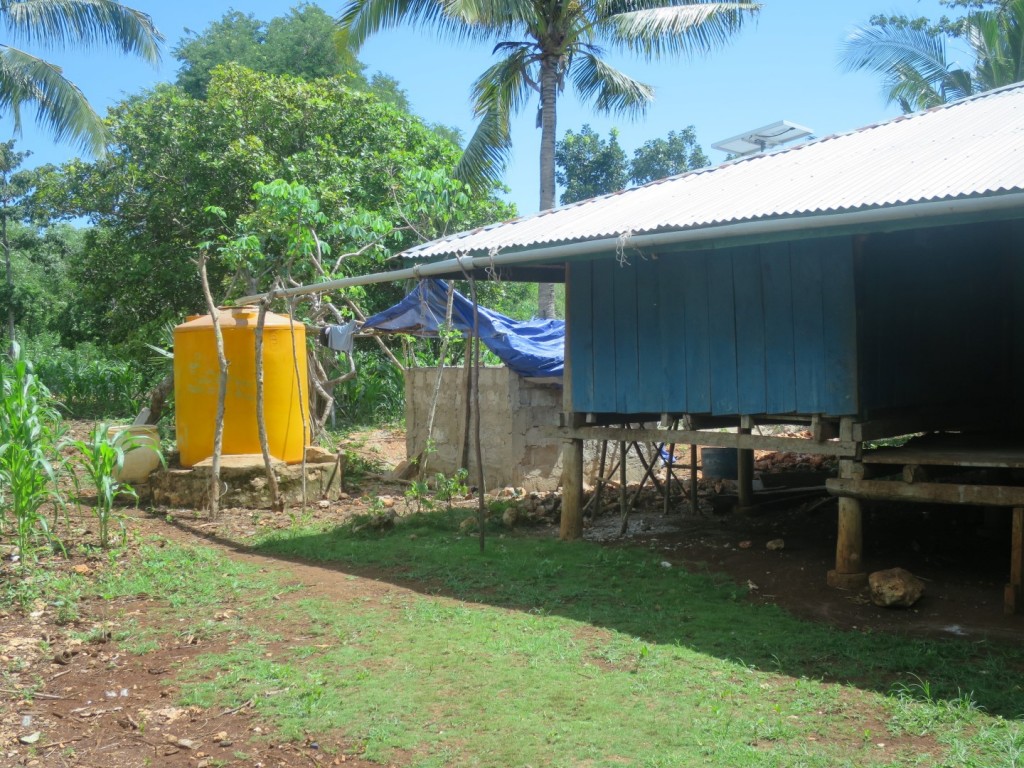 Other families have accessed water via a community well. Wells in this area are dug by hand through limestone rock. Some attempts at hand dug wells have had to be abandoned after not finding water despite digging to a depth of up to 45 metres. This year, many of the wells have dried up. I am happy to report, however, that a well dug with World Renew funding in one of our villages, Napu, still provides water for approximately 200 families. People are desperately walking very long distances to access this well.
Other families have accessed water via a community well. Wells in this area are dug by hand through limestone rock. Some attempts at hand dug wells have had to be abandoned after not finding water despite digging to a depth of up to 45 metres. This year, many of the wells have dried up. I am happy to report, however, that a well dug with World Renew funding in one of our villages, Napu, still provides water for approximately 200 families. People are desperately walking very long distances to access this well.
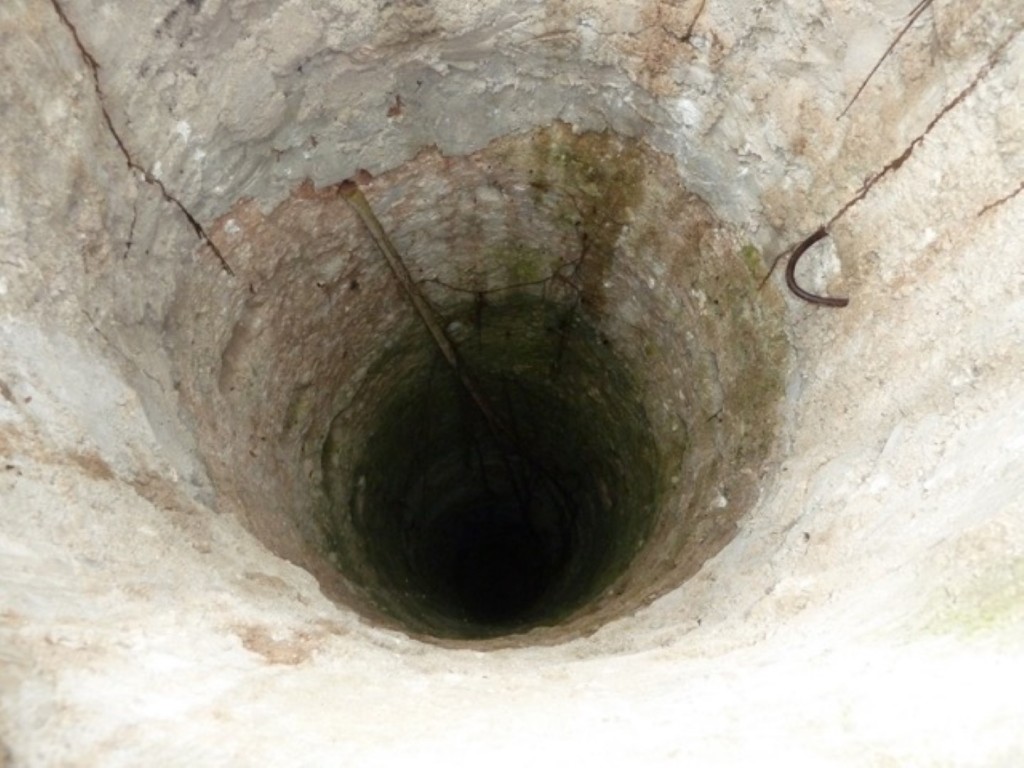 In other communities, the government does send water trucks periodically, but there is a fee associated with this water – a fee that most cannot afford. To complicate things further, the tanked water often arrives contaminated as the truck is not always cleaned between trips and people need to (or should) boil the water before drinking it to prevent illness.
In other communities, the government does send water trucks periodically, but there is a fee associated with this water – a fee that most cannot afford. To complicate things further, the tanked water often arrives contaminated as the truck is not always cleaned between trips and people need to (or should) boil the water before drinking it to prevent illness.
While a few major rivers run through the territory, they are less prolific than usual. We drove over many, many bridges with dry riverbeds underneath during our time here. The few remaining rivers are located a long way from where people live.
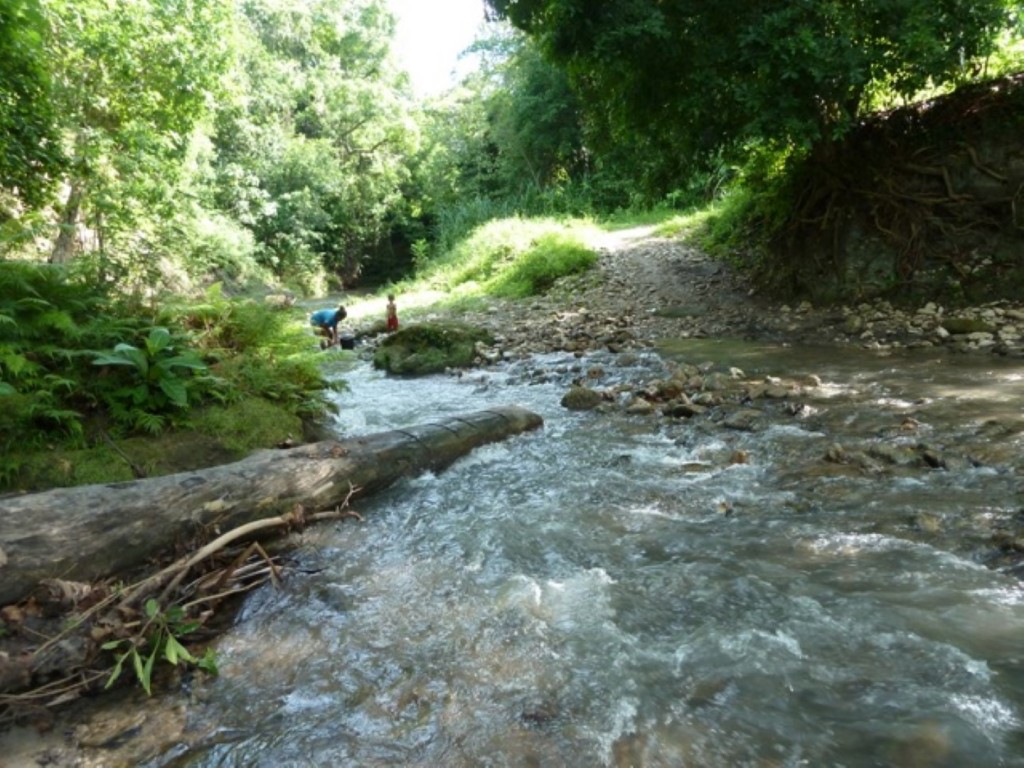 This leaves springs. There are some existing springs within a couple of kilometers of our target communities. The problem is that they are found low in a valley. This requires a challenging journey down a narrow, rocky path and then a steep climb back up with containers of water.
This leaves springs. There are some existing springs within a couple of kilometers of our target communities. The problem is that they are found low in a valley. This requires a challenging journey down a narrow, rocky path and then a steep climb back up with containers of water.
This precious water is only for drinking and cooking. Some villagers manage to get washed up or do some laundry while collecting water in the spring. This is a blessing to them, but may affect the quality of the water used for drinking and cooking later.
Although the commentary is in Indonesian, this link captures the journey that the people in one of our villages have to make to fetch water – https://www.youtube.com/watch?v=b6A3uUz8AM4
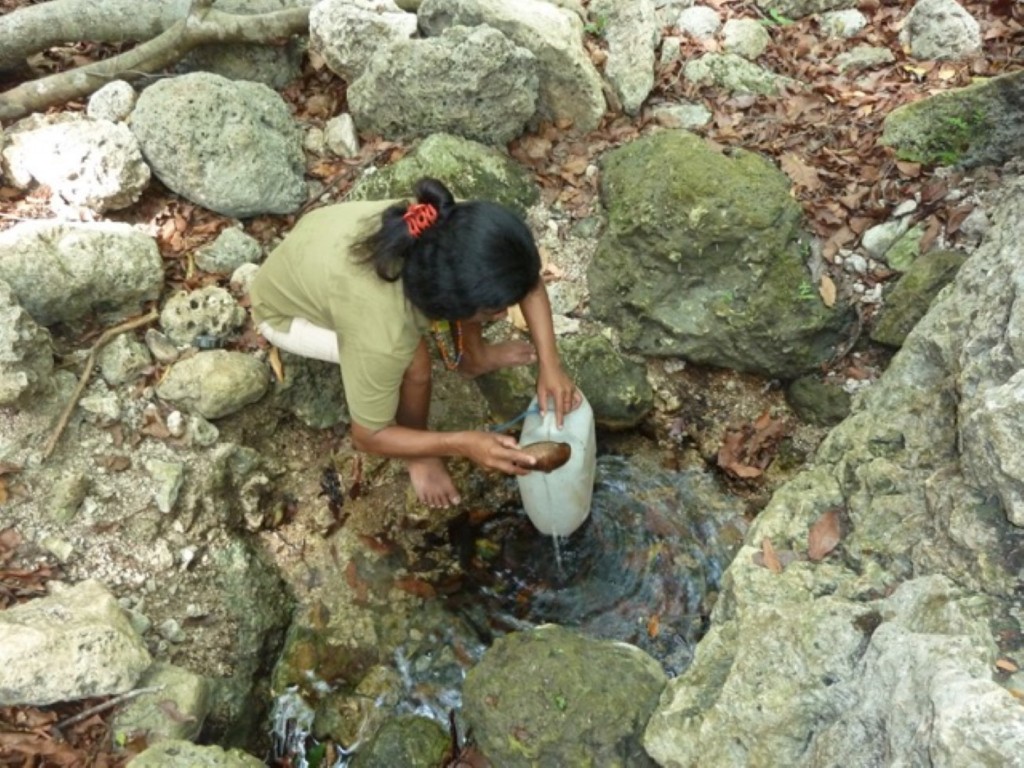 There are no easy answers for the farmers and families of Sumba. As they are dealing with their serious shortage of water, it is a great comfort to them to receive the food they need through this CFGB/World Renew project. They are very thankful to the people in Canada who care about them.
There are no easy answers for the farmers and families of Sumba. As they are dealing with their serious shortage of water, it is a great comfort to them to receive the food they need through this CFGB/World Renew project. They are very thankful to the people in Canada who care about them.
In approximately two weeks, our assignment in Sumba will conclude. Another couple will replace us as International Relief Managers with World Renew to carry on the project.
As always, we take away much more than we have contributed – we have learned many things; our lives have been enriched; we have established new friendships; and we have truly developed an appreciation for God’s great gift of water. We will strive to continue to remember the needs of the people on this lovely island.
Thank you for your encouragement, prayers, and support.
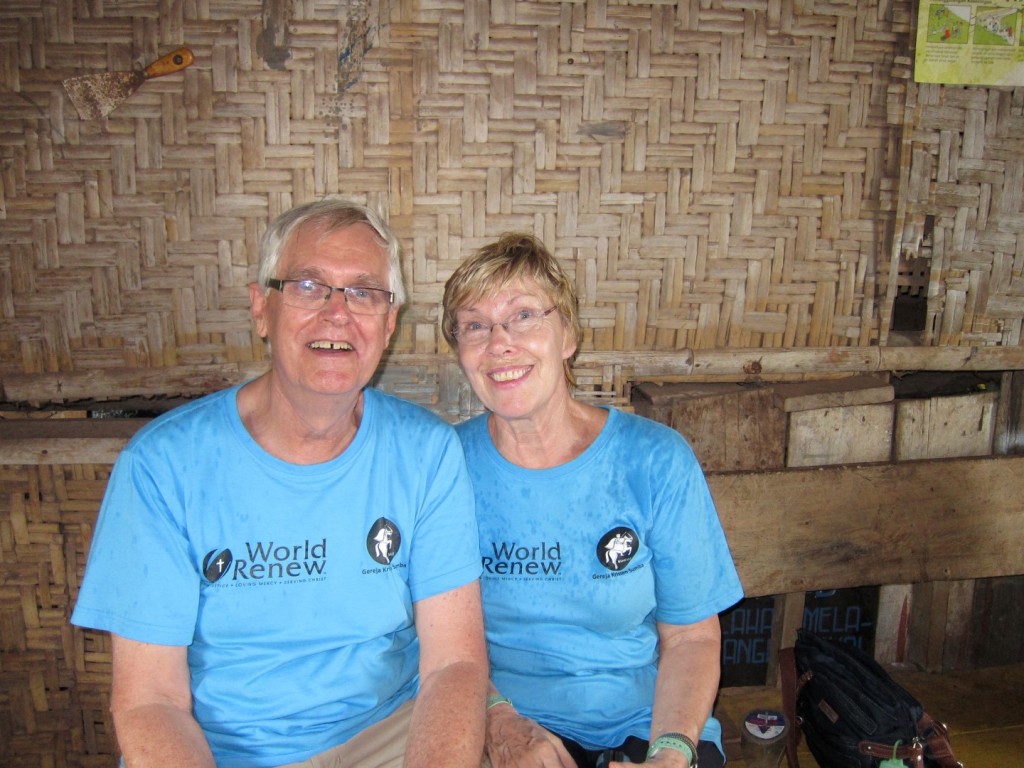


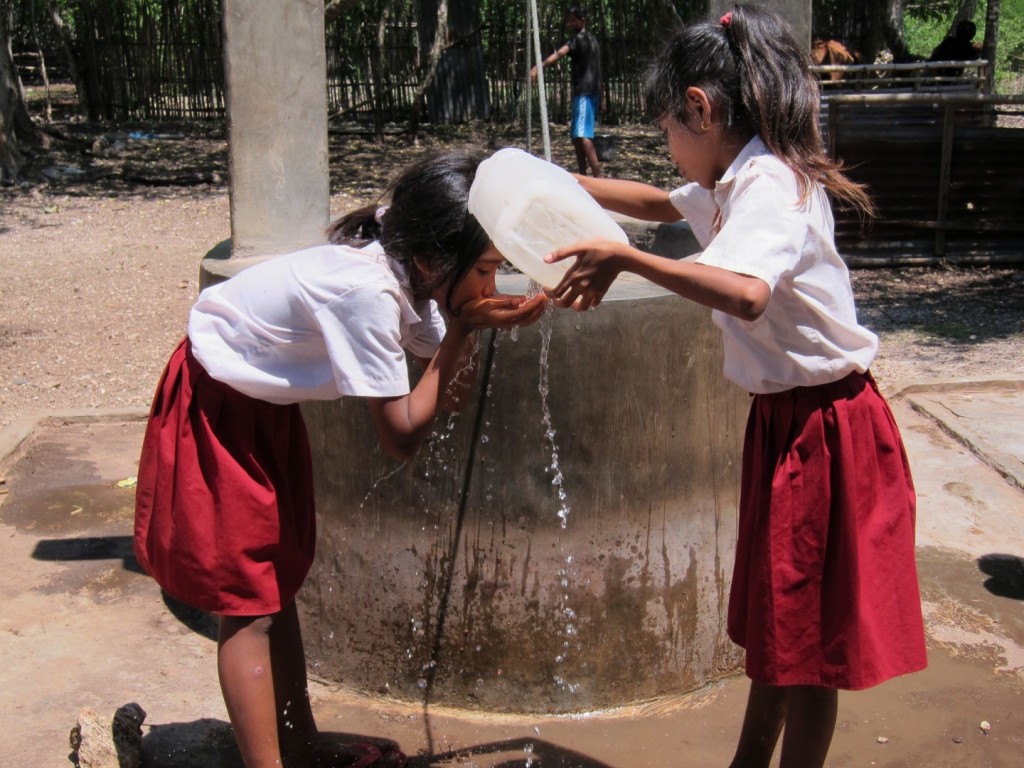
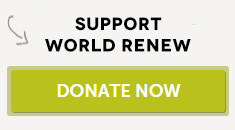
Thank you again for your update. So appreciate it. We continue praying for you and the work you are doing. Blessings to all of you. Bob and Jane
Dear Harry and Annie, You look thirsty and hot! Praise God for your endurance and compassion, also for the success so far. Praying for good rain in Sumba and welcome to your replacement team (couple?). Love, your sister and brother
Those smiles speak volumes! Enduring heat and humidity to help the thirsty and hungry people of Sumba is a fulfillment of the passage in Matthew where God blesses those who help people in need. Thank you for all you do through World Renew. You are God’s hands and feet and we are blessed to support you! Jim and Margaret
Dear Annie and Harry,
thank you for your post. We should never take water for granted. God bless you in all you do!
Hi, Harry & Annie. You sure are right about being so lucky for us to just turn on the tap and the water flows freely. We also take for granted that the water has been treated so that we don’t pick up any diseases. In regards to the squat toilets, I had to use those for the two years that I was in Saudi Arabia. They do take a bit of getting used to though. But, we didn’t have to use buckets of water to flush them. The Saudis had built huge desalination plants that fed water into the towns and they also had sewers. Glad to hear that you are both well and will be rerurning home in a couple of weeks. June and I are still in Florida and looking forward to our trek home starting April 9 or 10.
Hopefully we can get together when both get home.
Gene
thank you for reminding us harry and annie, what a great privilege that clean running water is. We need that….it’s also a good reminder of how crucial water is for our souls.
Bless you as you wind down your time in Sumba.
muah2u
h&d
https://www.youtube.com/watch?v=maT4phfTXR4
https://www.youtube.com/watch?v=jQH8ddezyh0